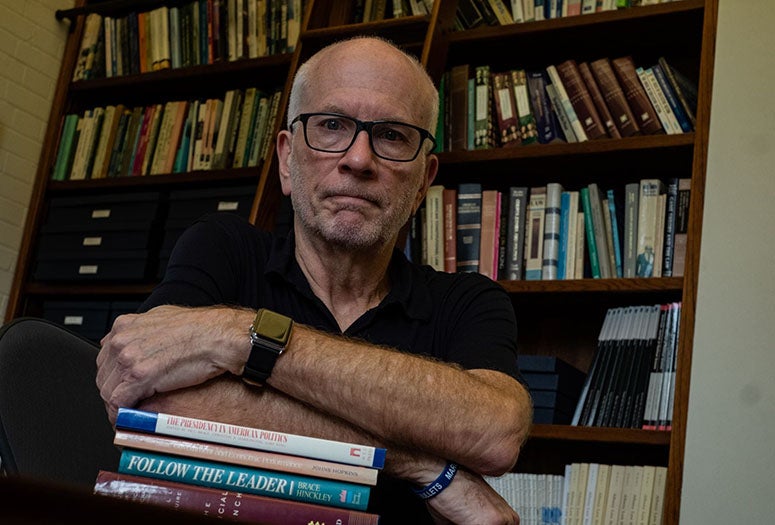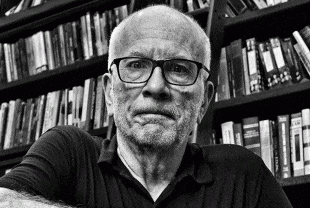HOUSTON – (Sept. 25, 2020) – As President Donald Trump prepares to name his nominee for the U.S. Supreme Court seat left vacant with the passing of Associate Justice Ruth Bader Ginsburg, Rice University political scientist Paul Brace is available to discuss likely nominees as well as the implications for the 2020 general election, just over a month away.
"Taking Senate Majority Leader Mitch McConnell at his word, there will be a floor vote on a Trump Supreme Court nominee," said Brace, the Clarence L. Carter Professor of Political Science at Rice. "Taking President Trump at his word, the nominee will be a woman and this will be announced Saturday. The remaining questions concern whether that vote will occur before or after the election, which woman will be nominated and the difference it may make for the 2020 election."
Brace said this vacancy is a godsend to Republicans for more than the obvious reason.
"A protracted fight over this seat promises to divert attention from the ever-climbing number of deaths from COVID-19 and Trump’s inept handling of this monumental threat," Brace said. "Moreover, this opportunity to solidify an iron-clad conservative supermajority on the Supreme Court might serve to juice up the Republican vote in the waning days of the election."
But this is not without cost, Brace said.
"A recent CNN poll revealed 59% of Americans favored allowing the president elected in November to make the pick, while only 41% favored Trump making the choice immediately," he said.
Despite the president's unpredictable nature and the Senate's committed GOP majority poised to deliver his appointment, Brace said there seems to be more value to Trump and the Republicans dragging this confirmation out and not confirming before the election.
"Delivering the Supreme Court that conservatives have dreamed of for generations before the election might lead some to be complacent on Election Day, particularly as some Trump voters from 2016 seem less likely to support him in 2020," he said. "It would also deny Republicans an issue that promises to compete well with COVID-19 for the news cycle through Election Day."
Trump’s avowed commitment to selecting a female nominee to fill the vacancy left by the second woman to serve on the Supreme Court makes more than obvious sense; it also makes political sense for a president suffering what some have described as a “gender chasm,” with polls showing women favoring Biden over Trump by over 10%, Brace noted. He said that there are two leading candidates, each offering positives and negatives for Trump and Republicans in the midst of the hotly contested election season.
U.S. Court of Appeals Judge Amy Coney Barrett of the 7th Circuit is one name that has been brought up during the previous Trump Supreme Court opportunities, Brace said.
"Described as a female Antonin Scalia, she has been on record as opposing abortion and the Affordable Care Act (ACA). She is, in a word, the dream of staunch conservatives who felt burnt by lost opportunities to forge a resilient conservative court in the past when (former Associate Justice David) Souter and (Chief Justice John) Roberts disappointed them," he said.
"While she offers ideological attractions, being from Indiana she does not advance the ball in terms of the electoral college," he continued. "In addition, her affiliation with a religious organization characterized by some as controversial, and past statements challenging President Obama’s authority to make a Supreme Court appointment that would change the balance of the court – as hers would now – might produce a bridge too far for the Republicans in this electoral season."
Brace said that Judge Barbara Logoa of the 11th Circuit offers a strong counterpoint to Barrett.
"A Cuban-American from Florida, she might help Trump in two critical areas," he said. "Florida is an almost mandatory must-have for Trump, particularly given his evident weakness revealed in polling from several states he won in 2016. While she offers substantial electoral advantages, her conservative credentials are not as solid as Barrett’s and she raises the prospect of a Souter-like disappointment to many conservatives."
Brace said the choice of a Supreme Court justice is always important, but perhaps never more important than right now given the critical issues this court is likely to address in the very near future.
"Notably, healthcare will be back before the court, and the tax that led Roberts to side with the liberal wing to uphold the ACA was gutted by Congress after Trump’s election. Abortion will also be on the docket," he said. "Remarkably, Roe v. Wade was upheld by Roberts, an abortion foe, siding with the liberal wing on the basis of precedent. LGBT rights, famously expanded by the Roberts court when Anthony Kennedy sided with the liberal wing, may be eroded in a case involving a religious charity’s refusal to allow gay couples to foster parent."
Brace said that all of these are explosive issues with monumental implications but may pale with regard to a final issue: the outcome of the 2020 election.
"President Trump and his supporters have telegraphed their disdain for mail-in ballots in this election," he said. "This balloting takes on particular importance this year as many voters seek to avoid social contact in the midst of a pandemic."
Brace said that in all likelihood, the election outcome will not be determined on election night, but will await the count of an extraordinarily high number of mail-in ballots, ballots that Trump has already indicated he is likely to challenge in court.
"The prospect of this election appearing before the Supreme Court is high," Brace concluded. "As the election of 2000 revealed, the ideological balance of the court could likely tip the outcome of the election."
Brace is widely published, primarily in the areas of U.S. politics and judicial decision-making. He comments regularly on presidential politics, the judiciary and the U.S. government. For more information on Brace, visit http://www.ruf.rice.edu/~pbrace. To schedule an interview, contact him directly at 832-628-5285.
-30-
This news release can be found online at news.rice.edu.
Follow Rice News and Media Relations on Twitter @RiceUNews.
Photo credit: Jeff Fitlow/Rice University
Located on a 300-acre forested campus in Houston, Rice University is consistently ranked among the nation’s top 20 universities by U.S. News & World Report. Rice has highly respected schools of Architecture, Business, Continuing Studies, Engineering, Humanities, Music, Natural Sciences and Social Sciences and is home to the Baker Institute for Public Policy. With 3,978 undergraduates and 3,192 graduate students, Rice’s undergraduate student-to-faculty ratio is just under 6-to-1. Its residential college system builds close-knit communities and lifelong friendships, just one reason why Rice is ranked No. 1 for lots of race/class interaction and No. 1 for quality of life by the Princeton Review. Rice is also rated as a best value among private universities by Kiplinger’s Personal Finance.


